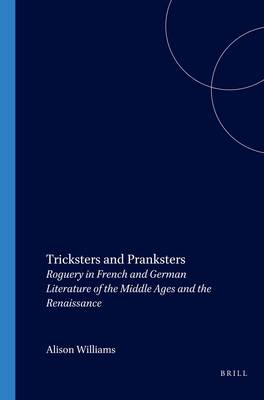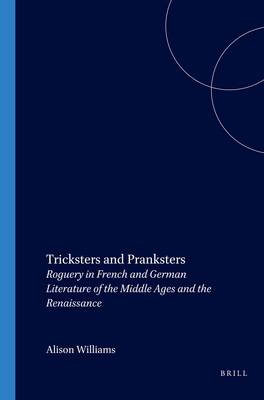
- Afhalen na 1 uur in een winkel met voorraad
- Gratis thuislevering in België vanaf € 30
- Ruim aanbod met 7 miljoen producten
- Afhalen na 1 uur in een winkel met voorraad
- Gratis thuislevering in België vanaf € 30
- Ruim aanbod met 7 miljoen producten
Zoeken
Omschrijving
This volume represents a contribution to comparative scholarship in Medieval and Renaissance studies in its investigation of the ingenious diversity of roguish practices found in Medieval and Renaissance literature and its recognition of the coherent normative function of tales of tricksters and pranksters. The wide variety of works analysed, from those forming part of the established canon of texts on undergraduate degree schemes to lesser-known works, makes the volume of interest to students and researchers alike.
The roguish behaviour of women, priests, foxes and outlaws and the knavery of Eulenspiegel and Panurge are used to illustrate how rituals of inversion and humiliation typical of the medieval carnival are reflected in literary accounts of trickery, and to question whether the restorative function attributed to carnival celebration is equally to be found in the intra-textual and extra-textual outcomes of trickery. This analysis is supported by studies into the trickster in mythology, sociological investigations into the role of disorder, Bakhtinian theories of carnival and the carnivalesque, and theories of black humour.
The roguish behaviour of women, priests, foxes and outlaws and the knavery of Eulenspiegel and Panurge are used to illustrate how rituals of inversion and humiliation typical of the medieval carnival are reflected in literary accounts of trickery, and to question whether the restorative function attributed to carnival celebration is equally to be found in the intra-textual and extra-textual outcomes of trickery. This analysis is supported by studies into the trickster in mythology, sociological investigations into the role of disorder, Bakhtinian theories of carnival and the carnivalesque, and theories of black humour.
Specificaties
Betrokkenen
- Auteur(s):
- Uitgeverij:
Inhoud
- Aantal bladzijden:
- 244
- Taal:
- Engels
- Reeks:
- Reeksnummer:
- nr. 49
Eigenschappen
- Productcode (EAN):
- 9789042015128
- Verschijningsdatum:
- 1/01/2000
- Uitvoering:
- Paperback
- Formaat:
- Trade paperback (VS)
- Afmetingen:
- 155 mm x 234 mm
- Gewicht:
- 349 g

Alleen bij Standaard Boekhandel
+ 233 punten op je klantenkaart van Standaard Boekhandel
Beoordelingen
We publiceren alleen reviews die voldoen aan de voorwaarden voor reviews. Bekijk onze voorwaarden voor reviews.








